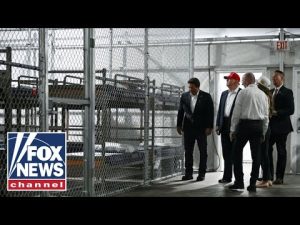This week, a new CIA report has reaffirmed what many conservative voices have long believed: there are serious questions surrounding the accountability of covert leaders in America’s intelligence community. One name that repeatedly surfaces in discussions of corruption and misconduct is John Brennan. He is not just a former CIA director; he is a figure who has, over the years, embodied many of the warnings conservatives have raised about unchecked government power.
John Brennan has a troubling history, one that raises eyebrows and demands scrutiny. His admission of communist sympathies is disturbing enough, but the fact that he signed off on visas for four of the hijackers involved in the 9/11 attacks is unacceptable. This revelation alone should make anyone question his judgment and loyalty to the country. It is hard to fathom how someone with such a record continues to walk free while others face aggressive investigations over far lesser offenses.
Adding to this narrative is a string of revelations about Brennan’s previous actions. Reports indicate he was involved in spying on a Senate committee that was investigating his own abuses, including the illegal use of torture. It shows not only a lack of accountability but also a willingness to undermine the very system that should hold him responsible for his actions. This is a concerning pattern of behavior—one that suggests a deep-seated disregard for the rule of law.
Then there is the infamous Steele dossier, which Brennan pushed to be included in intelligence assessments. This phony document was central to launching the Crossfire Hurricane investigation—an effort that many believe was aimed at undermining a duly elected president. The insistence on utilizing such dubious information raises significant questions about the morality and ethics of those at the highest levels of our intelligence operations.
The frustration among conservatives is palpable. Calls for the prosecution of Brennan and others like James Comey grow louder. Some argue that the statute of limitations should not protect individuals who may have committed acts of treason against the United States. However, the challenge remains: prosecuting these individuals in a judicial system that many believe is biased. D.C. courts are often seen as political battlegrounds where finding an impartial jury is nearly impossible. This perception adds to the sense of injustice, as seen in cases like that of General Flynn, who endured a nightmare of legal battles.
In a time when accountability is non-existent for those in power, it is crucial to maintain pressure on our institutions to uphold justice. The public demands action against figures like Brennan and Comey. The conservative base is not just asking for a reckoning; they are asserting that it is vital for the integrity of the country. Whether it is through grassroots calls for justice or louder demands for investigations, conservatives are standing firm on the belief that no one is above the law, and it is time that those who betray their country face the consequences of their actions.







